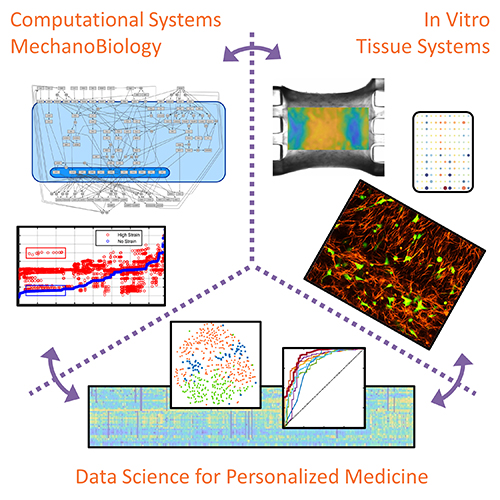Research
Fibrotic scarring can affect nearly every tissue in the body across a wide range of conditions including cardiac fibrosis, pulmonary fibrosis, kidney fibrosis, liver fibrosis, tendon scarring, scleroderma, cystic fibrosis, rheumatoid arthritis, and even cancer metastasis, contributing in total to millions of annual deaths around the world. Despite the massive morbidity and mortality of fibrotic disease, diagnosis and therapy options remain elusive due to several major hurdles:
1. Complexity of signaling and metabolic networks that integrate both biochemical and biomechanical stimuli
2. Undesirable therapy side effects for non-diseased tissues
3. Slow progression of fibrotic buildup that necessitates long and costly clinical trials
4. Highly variable patient responses without a clear rationale for who is or isn't suitable for therapy
Our lab is integrating computational systems biology, data science approaches, and high-throughput in vitro tissue culture platforms in order to engineer innovative technologies to clear these hurdles and advance data-driven, personalized medicine for fighting fibrotic diseases, especially heart failure.
